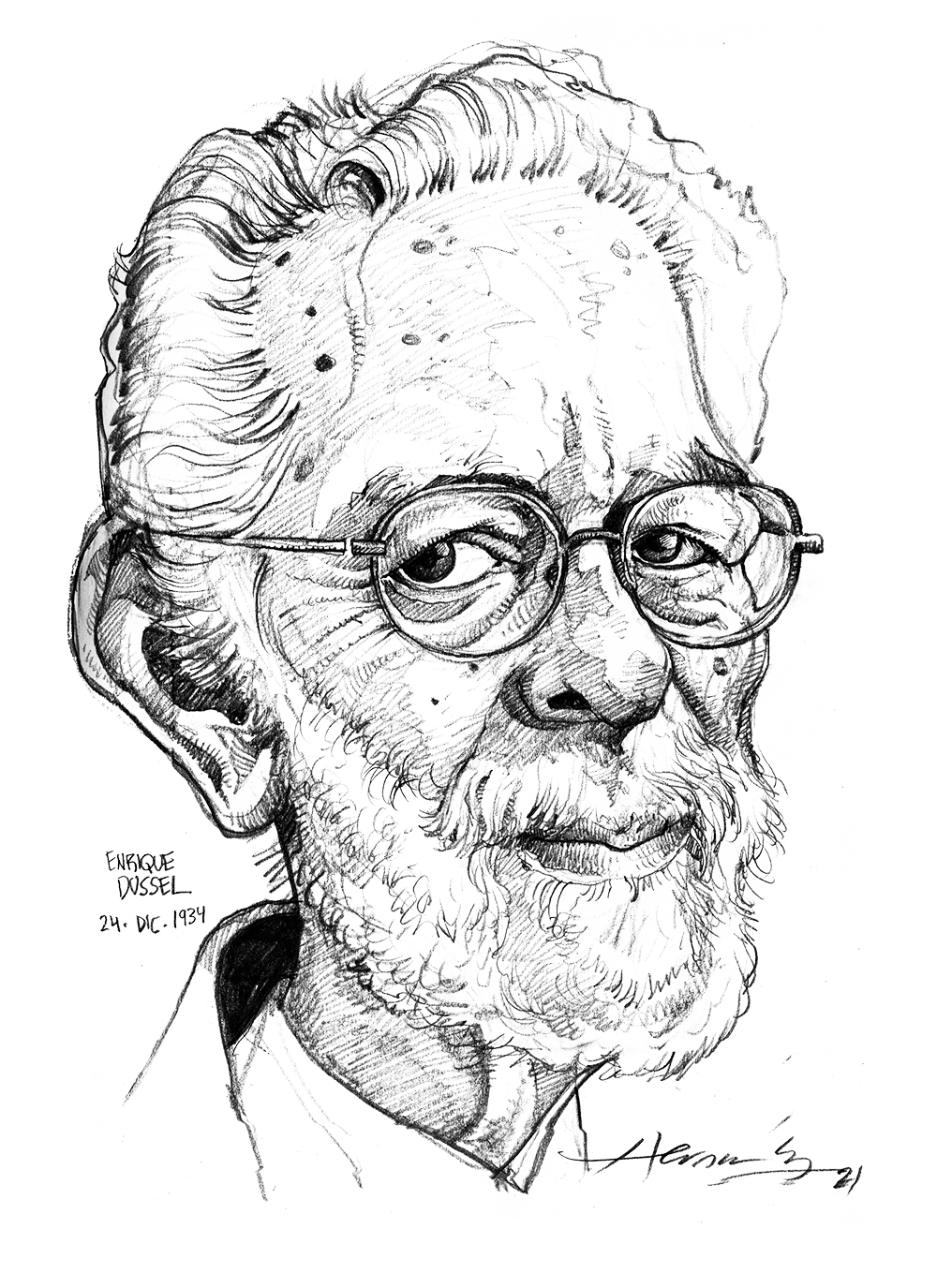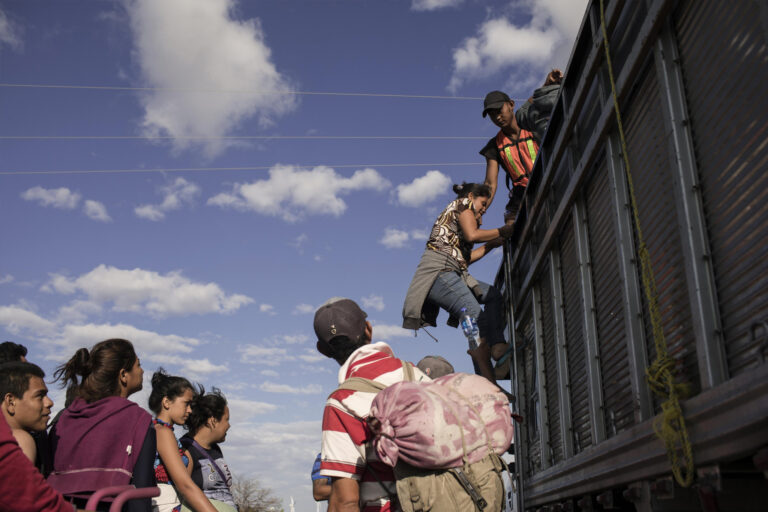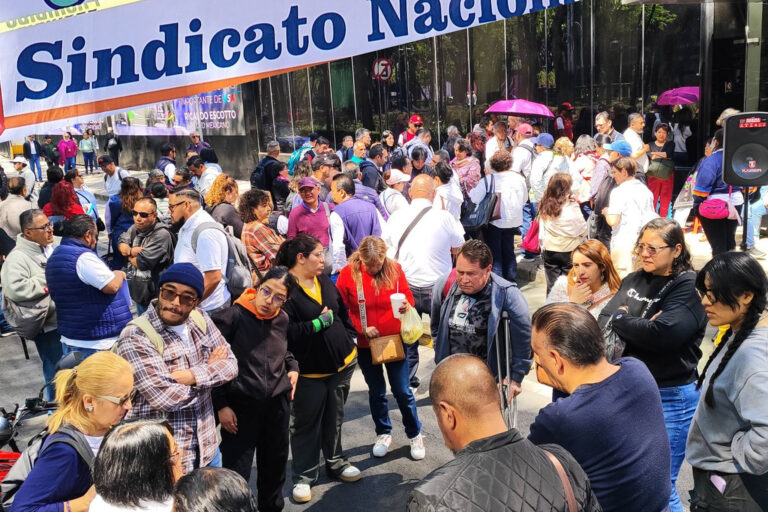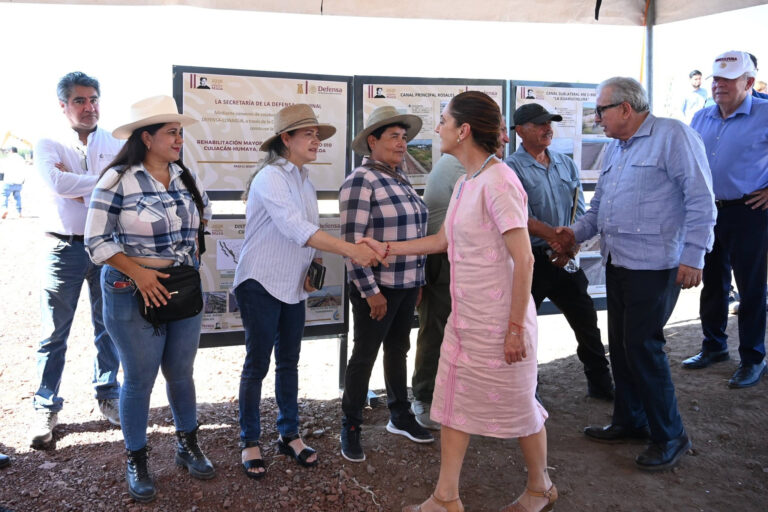Effective Principles
This article by Luis Rodrigo Wesche Lira originally appeared in the March 2025 edition of Memoria: Revista de Crítica Militante. We thank Memoria for permission to reprint the article and encourage you to support Memoria and the Center for Studies of the Labor and Socialist Movement. The views expressed in this article are the author’s own and do not necessarily reflect those of the Mexico Solidarity Project.
The first phase of the Fourth Transformation (4T) has concluded. Construction has begun on what now-President Claudia Sheinbaum has called its Second Floor. This entails addressing pending issues, correcting issues, deepening trends, and introducing innovations. What is the environment for this? Favorable: Andrés Manuel López Obrador (AMLO) closed with a 73% approval rating; the population’s “common sense” has shifted to the left; the President begins her administration with a qualified majority in the Chamber of Deputies and the Senate, which translates into the possibility of passing constitutional reforms. Despite all these positive elements, there is one that is transversal and on which the continuity of the 4T in its Second Floor and in those to come depends: the revolution of consciences, to which we will dedicate a reflection.

In his most recent book, ¡Gracias! —in many ways his political testament—AMLO mentions some outstanding issues from his time as President of the PRD [Editor’s Note: Partido de la Revolución Democrática, a social democratic party founded in 1989 which devolved into a neoliberal party until finally losing its party registration owing to poor electoral results last year]. The one that stands out, and appears repeatedly throughout the text, concerns political and ideological formation:
“As national leader of the PRD, I also failed to imbue the party with more principles and ideals. During my time there, a school for training political cadres was created, but it wasn’t enough. As I’ve already stated, if we don’t strengthen principles, pragmatism spreads and can become dominant. Putting ideals first is the only thing that can stop politicking, nepotism, cronyism, clientelism, and corruption, all those scourges of traditional politics […]. Now, one of the best things Morena has done—and it has done many things well—has been to allocate talent and convictions to its exceptional cadre training school.”
Already during his leadership period, between 1996 and 1999, the Tabasco politician showed his concern for incorporating principles and ideals among the political cadres, since only in this way would it be possible to prevent pragmatism from degenerating into a series of practices harmful to public life, into the fetishism of institutions and public officials who forget that the ultimate seat of political power is the people (a situation that, in effect, ended up happening to the PRD when in 2012, at the same time that it signed the Pact for Mexico, it signed its sentence that was finally fulfilled in the recent elections).
In contrast, and with the intention of not repeating the mistakes and fate of the Yellow Sun [emblem of the PRD], before assuming government in 2018, the Morena Congress of that year agreed to reform its statutes and create a new body within the party, the National Institute for Political Training (INFP), whose objective would be to guarantee—as its name indicates—the political training of militants and sympathizers of the Fourth Transformation. Since then, under the presidency of Rafael Barajas Durán, known as “El Fisgón,” the INFP has gradually positioned itself—not without certain tensions at different times—as the main body within the party in charge of ideological tasks.

On more than one occasion, leaders of the first progressive era in Latin America have pointed out that the collective triumph of lifting more than 40 million people out of poverty was not accompanied by the ideological formation of those who benefited; in other words, efforts were made to improve their material conditions, but not to instill in them a set of principles that would allow them to recognize that the improvements they were now receiving were explained by an effort to institutionalize collective rights. The regrettable result of this absence was new middle classes that rejected national-popular governments and ended up supporting right-wing options, as happened in Argentina and Brazil:
Sometimes the objectives of revolutions are not achieved or do not endure because they are not accompanied by changes in the population’s mentality that allow, with their active and conscious participation, to counteract the deviations that arise when the leaders of the transformation processes fail to act consistently or become corrupt. In other words, it’s not about coming to power and having people continue to think the same, but rather about the transformation being assimilated, produced, applied, and defended by the people.

Without changes in mentality—or, in our terms, without a revolution of consciences—processes of transformation can collapse. Distortions, errors, and erosion in the exercise of power become the order of the day. To revitalize the horizon of justice, the people must be able to take a panoramic view of the transformation process and its actors, and be able to judge whether they are still heading in the right direction or have strayed. However, there is a more important reason: the people must internalize the transformation; understand that it is the ultimate seat of political power and act accordingly. This should translate into the construction of mechanisms for greater participation in the different spheres of government and its institutions, a greater democratization of the three branches of government, and the radicalization of the laws and procedures that regulate our republic, imbuing them with national-popular elements. In this sense, recalling the philosopher Enrique Dussel, AMLO suggests that “a leader should not abandon his responsibility until his followers reach the full exercise of their participatory power. But once that stage is reached, the leader must be consistent and withdraw.”
Our country has suffered centuries of oppression, and its historical debts to various sectors of the population are considerable, so surely the Second Level of the Fourth Transformation will be insufficient, and other levels will be required, or at some point—why not think about it?—the construction of the Fifth Transformation. The condition for these advances, in each of the country’s previous transformations (Independence, the Reform, and the Mexican Revolution), has been the people, who, when needed, recover principles, ideals, dreams, and utopias forged by pre-Hispanic cultures and, in the heat of struggle, by the very actors behind the country’s transformations:
“The ideas forged in popular movements may go into hibernation and logically don’t concern everyone, but they don’t disappear, they aren’t erased from the memories of many. Thus, the legacy of these transformational processes is not limited only to economic, social, and political demands: it also involves progress in the realm of ideas.”
Ideas often aim for a more distant target, which is valuable because it prevents us from settling for what exists. However, their articulation within the actual possibilities of each situation is essential. The revolution of consciences, then, does not only imply the adoption of principles and ideals, but also the ability to make them concrete (what in philosophical language we would describe as the tense relationship between the universal and the particular):
“When fighting to uphold democracy, Manichaeism is unacceptable. Politicians are not divided into good and bad; they are distinguished, above all, by their way of acting in certain circumstances […]. One cannot question or judge a priori , with finality. Principles must be protected, but the benefit of the doubt must be given. In politics, risks must be taken to advance. It is essential to balance principles with effectiveness.”
The last sentence summarizes the way in which political cadres should be formed. A concern solely with abstract principles and ideals runs the risk of building castles in the air, intolerant of any imperfect brick. Hegel, speaking of the French Revolution, described the fate of purists: they become victims of the very guillotine they initially used against dissidents, as happened to the Robespierrists during the French Revolution. From this perspective, building a republic from below with institutions serving the people is impossible.
At the opposite end of the spectrum, we find a risky position whose voice would be: “We need efficient cadres.” Without principles? How can we distinguish efficient activists from the right or the left without normative criteria? Nor can we renounce ethical principles that guide political action, as this runs the risk of politicians, activists, or supporters incurring in corruption or lacking awareness that material changes are explained by a transformation in the way we understand the relationship between the state and society, the role of institutions, and the responsibilities of public servants.
This false dilemma was analyzed by Max Weber in The Politician as a Vocation when he points out the tension between an ethics of conviction and an ethics of responsibility . While the former refers to acting according to a maxim or principle, the latter has to do with acting based on the consequences—foreseeable or not—that an action generates. Conducting oneself solely in accordance with principles or maxims ignores the fact that good actions do not always lead to good things; sometimes, unexpected situations occur. Or, as the former President has stated more than once: “politics is deciding between inconveniences.” Can the consequences of our actions then be ignored? If we seek to have an effective impact, this is unthinkable. However, proceeding solely from the perspective of responsibility forces us to ask whether it is valid to fulfill our responsibilities without adhering to any principle, because if so, anything could be justified as long as it results in optimal consequences for the majority of those affected.
For Max Weber, a good politician is not one who chooses only one of the ethics, but rather one who articulates both: “The ethics of conviction and the ethics of responsibility are not absolute opposites in this sense, but rather complements, since only both ethics constitute a genuine person who can have a vocation for politics.” AMLO also elaborates on the same point, as he expresses in an interview with the cartoonists in Chamuco [satirical political magazine]: “Politics also requires effectiveness. Of course, when it comes to choosing between principles and effectiveness, there’s no need to hesitate: principles. But if you stick to principles alone, you’re stuck in a monastery. But if you want to transform, you need effectiveness, balance.” Both principles and effectiveness are needed; a good politician is one who manages to find balance.
From this emerges a fundamental task for the party: to educate based on principles, but effectively. As Enrique Dussel rightly said, “Morena should not be an electoral machine, but rather a training school for political cadres.”

Morena must be a permanent political school where politics is taught, this profession, based on humanistic foundations. The goal is to educate young people in the knowledge of historical processes—especially the lessons learned from the memory of major national transformations—as well as in everyday practice, so they learn to work with people in organizing and raising civic awareness.
The humanist foundations or principles, derived from our own pre-Hispanic and republican history in dialogue with those doctrines and philosophies upheld by the victims of unjust political and economic orders, are communality, social justice, reciprocity, collaboration, and solidarity, or as AMLO succinctly formulated them in Towards a Moral Economy (2019): “guaranteeing decent living conditions for all through economic progress with justice and based on the people being the sovereigns of the path taken by the political community. However, these principles are not given in the abstract, but rather hand in hand with the knowledge of historical processes where it is possible to identify the effectiveness of the actions of the different actors who influenced the different transformations of the country, not exempt from difficulties, errors, setbacks, or changes of direction, but guided by a principle that remains valid both yesterday and now: ‘for the good of all, the poor come first.'”
Bibliography
López Obrador, Andrés Manuel, Gracias!, Editorial Planeta, Mexico, 2024.
_, Hacia una economía moral, Editorial Planeta, México, 2019.
Weber, Max, “La política como profesión”, El político y el científico, Alianza Editorial, Madrid, 2021, pp. 137-252.
-
Let’s Talk About Migration: Trumpist Persection
Millions of women who have endured unspeakable violence on their migration journey are now being persecuted in the United States by an extremely xenophobic and misogynistic government, led by Donald Trump,
-
Culture | Labor | News Briefs
Workers Occupy Culture Secretariat, Demand 13% Wage Increase
2,000 workers have been receiving incomes below Mexico’s minimum wage for over two years.
-
People’s Mañanera March 2
President Sheinbaum’s daily press conference, with comments on electoral reform, the gradual move to a 40 hour workweek, employment, national security strategy, and once again, the call for peace.




